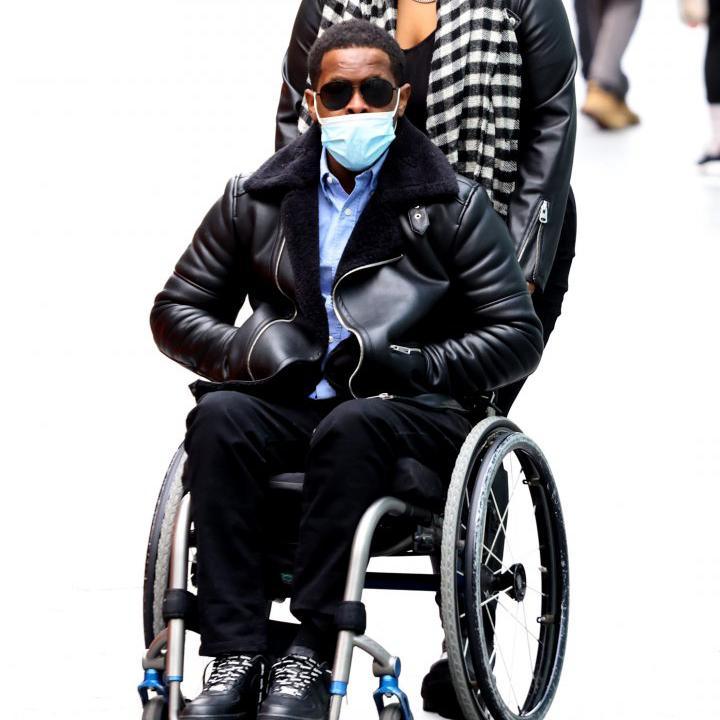Met Police officer left Tasered man paralysed

PC Imran Mahmood should not have used his Taser, the court was told
At a glance
PC Imran Mahmood, 36, is accused of causing grievous bodily harm to Jordan Walker-Brown during a patrol in the early months of the first lockdown in 2020
Mr Walker-Brown, 23, was left paralysed from the waist down after falling backwards over a fence, hitting his head on the footpath behind and breaking his back after he was Tasered
PC Mahmood does not dispute inflicting serious injury, but denies it was unlawful
The trial continues
- Published
A Metropolitan Police officer left a man with "catastrophic" life-changing injuries after Tasering him on top of wheelie bins, Southwark Crown Court has heard.
PC Imran Mahmood, 36, is accused of causing grievous bodily harm to Jordan Walker-Brown during a patrol in the early months of the first lockdown in 2020.
Mr Walker-Brown, 23, was left paralysed from the waist down after falling backwards over a fence, hitting his head on the footpath behind and breaking his back.
PC Mahmood does not dispute inflicting serious injury, but denies his actions were unlawful.
The court heard on 4 May 2020, PC Mahmood was patrolling in Haringey, north London, with eight other officers when their marked van turned into Burgoyne Road and he noticed Mr Walker-Brown walking along the pavement.
The jury was told PC Mahmood decided to speak to Mr Walker-Brown, then chased him along with a colleague. Both drew their Tasers.
When Mr Walker-Brown entered the front garden of a house and tried to climb over a fence by jumping on to some wheelie bins, PC Mahmood used his Taser, Prosecutor Ben Fitzgerald KC said.
He told the court this created an electric shock that caused Mr Walker-Brown to tumble backwards over the fence, landing head-first on the footpath below and breaking his back.
'No physical threat'

Jordan Walker-Brown suffered the injuries during the first coronavirus lockdown
Mr Fitzgerald told jurors: "Mr Walker-Brown did not present a physical threat to Mr Mahmood or anyone else.
"He did not produce a weapon or try to attack anyone; he was trying to get away.
"Mr Mahmood fired the Taser at the moment when it looked as if Mr Walker-Brown might get away over the wall.
"He discharged the Taser when Mr Walker-Brown was up on the wheelie bin, with the obvious risk of injury from an uncontrolled fall, which is exactly what happened, with catastrophic results.
"Mr Mahmood should not have used the Taser. It was not, the prosecution say, a reasonable use of force in the circumstances he faced. It was not lawful."
He added PC Mahmood had been taught that Tasers cause "intense pain" which leave the subject unable to control the muscles in their body, and that Tasering someone at a height carries a "particular risk".
The trial continues.
Related links
Follow BBC London on Facebook, external, Twitter, external and Instagram, external. Send your story ideas to hellobbclondon@bbc.co.uk, external